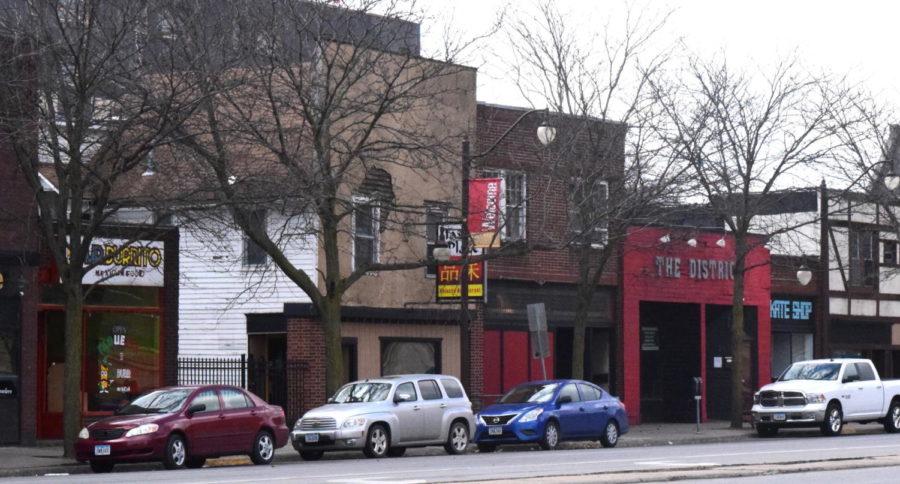Editorial: Keep Campustown diverse
Abigail Schafer/Iowa State Daily
Businesses along Lincoln Way are to be torn down to make room for new apartments.
April 4, 2017
As Campustown planning and development amps up, this Editorial Board would like to stress the benefits of a diverse urban community. While our university (and the market) desperately needs more student housing to accommodate demand, it would be unwise to forget what makes Campustown a unique urban center of sorts.
It’s the local businesses (restaurants, bars and shops) in combination with different types of housing and offices that accomplish just this. While Campustown itself is no longer as robust as it once was (no longer is there a movie theater, for example) it would be a shame were the community to be transformed into nothing more than a few square blocks of apartment complexes home to first-floor chain takeout restaurants.
There has long been debate as to what Ames’ Campustown ought to be. Should it simply live up to its old nickname, “Dogtown,” and merely be a kind of student slum? Home to grungy bars and fast food joints? Or what about this so-called “urban revitalization” that’s now trendy? Should Campustown be a place for both Ames locals and students to congregate?
It’s important that these things be considered as Iowa State and Ames continue to grow. All the land surrounding the university has and will be tapped for apartment development, and the story of Campustown’s fate will be telling of the direction in which Ames is headed.
Campustown serves a vital role in providing services to Iowa State students. Within walking distance of campus, this neighborhood is home to a drug store, restaurants, bars, post office, bank, coffee shops, tattoo parlors, gas station, hairdressers, Iowa State apparel vendors and many more shops besides. While most of these services are certainly not in danger of being pushed out, some are (and some local options especially).
“Intricate minglings of different uses in cities are not a form of chaos. On the contrary, they represent a complex and highly developed form of order.”
This is a thought from Jane Jacobs, and a thought well worth considering as Campustown continues to grow and evolve — not only for the sake of the community’s residents and visitors, but also for community entrepreneurs and small business owners.
A diverse community is a healthy community, and a healthy community is good for the city of Ames and for the university. This Editorial Board urges all involved stakeholders to pursue this ideal.







